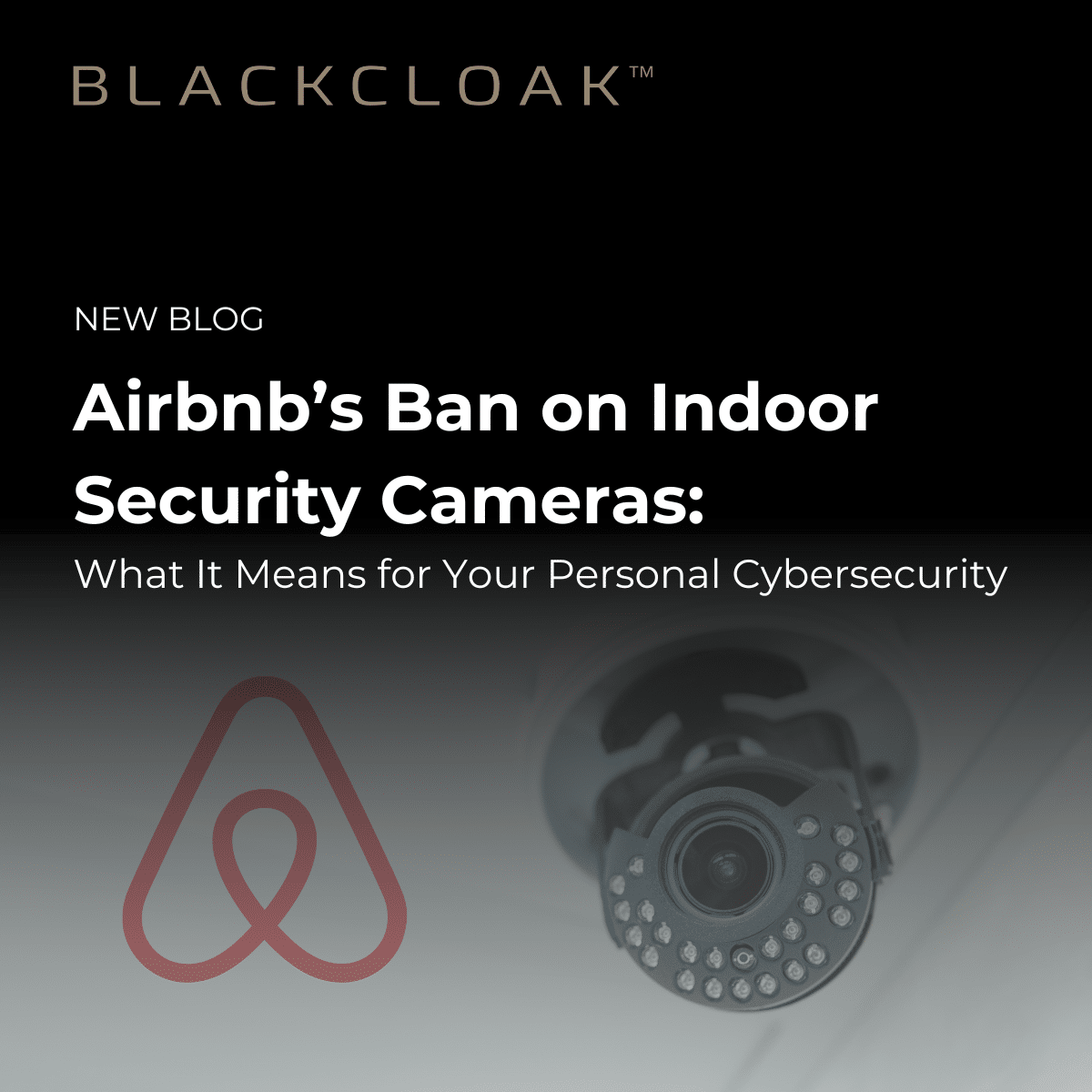Airbnb’s Ban on Indoor Security Cameras: What It Means for Your Personal Cybersecurity

Effective April 30, 2024 Airbnb, the global vacation rental giant, announced a significant policy change: the prohibition of all indoor security cameras in its listings worldwide. This decision, aims to bolster the privacy of guests and address longstanding concerns about hidden cameras. While the majority of Airbnb’s over 7 million listings did not report having indoor cameras, the new policy eliminates any ambiguity by outright banning them regardless of their location or prior disclosure.
Previously, Airbnb allowed indoor security cameras in common areas if they were clearly disclosed and visible. However, this policy update now unequivocally states that indoor cameras are not permitted under any circumstances. The updated guidelines also tighten rules around outdoor security cameras and other devices like noise decibel monitors, which must be disclosed to guests before booking. These devices cannot be placed in areas where guests have a heightened expectation of privacy, such as saunas.
This policy shift by Airbnb underscores a crucial intersection between personal cybersecurity and physical security. In today’s digital age, our personal privacy is increasingly vulnerable to breaches, not only through cyber attacks but also through physical surveillance. Hidden cameras in rental properties can capture intimate moments, conversations, and personal information, posing significant privacy risks.
At BlackCloak, we emphasize the importance of understanding the link between personal cybersecurity and physical security. Here are key considerations to protect your privacy when staying in rental properties:
1. Vigilance and Awareness
Stay vigilant when entering a rental property. Familiarize yourself with common spots where hidden cameras might be placed, such as smoke detectors, air purifiers, and decorative items. Simple checks, like shining a bright light to detect camera lenses or using smartphone apps designed to find hidden cameras, can go a long way in ensuring your privacy.
2. Device Inspection
Inspect the property for any unfamiliar or suspicious devices. We suggest you look for devices that seem out of place or serve no apparent purpose. If you find anything suspicious, unplug it and report it to the rental platform immediately.
3. Understand Disclosure Policies
Before booking, thoroughly read the listing details and understand the platform’s disclosure policies regarding surveillance devices. While Airbnb and Vrbo have clear policies against indoor surveillance, knowing your rights and the platform’s guidelines helps you make informed decisions.
4. Use of Technology
Consider using technology to enhance your privacy. Privacy screens for devices, camera lens covers, and secure communication tools can help protect your personal information from being captured.
5. Report and Advocate
If you encounter a privacy breach, report it to the rental platform and consider leaving a review to inform future guests. Advocacy for stronger privacy protections in rental properties can also drive policy changes and enhance overall guest security.
The move by Airbnb to ban indoor cameras is a positive step towards safeguarding guest privacy. However, the responsibility for personal cybersecurity does not end with the platform’s policies. By staying informed and proactive, you can ensure that your privacy is protected during your travels. At BlackCloak, we are committed to providing you with the knowledge and tools to secure your digital and physical spaces, wherever you go.










